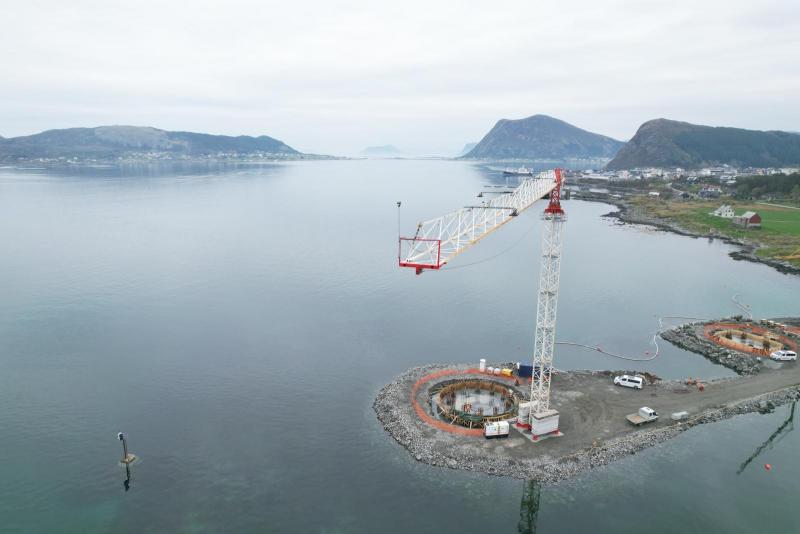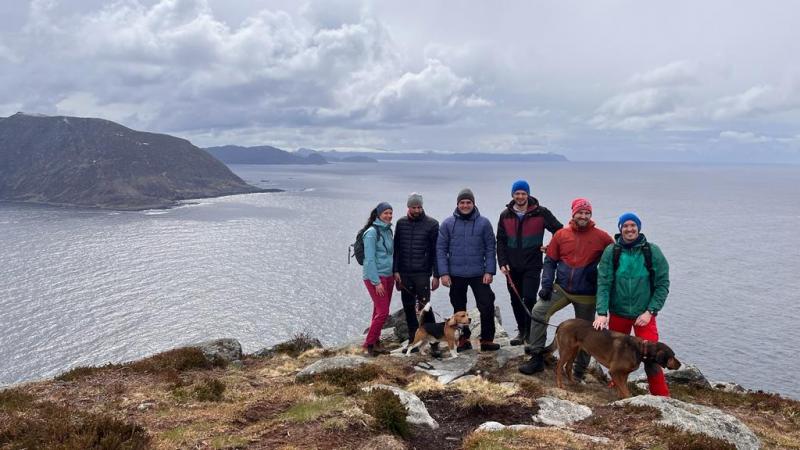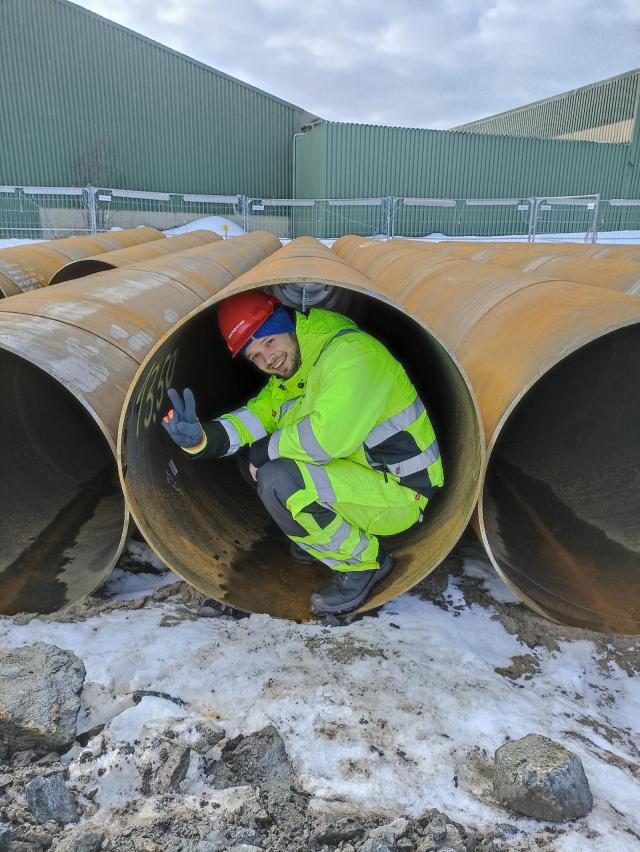Topic
Thanks to internship, FCE BUT student contributes to the construction of a bridge in Norway

Building a bridge led Štěpán Kapsa from FCE BUT to Norway at the beginning of this year. When the opportunity to travel for a work placement abroad through the Erasmus programme arose, he did not hesitate. And even though the working conditions are more demanding, he doesn't regret the decision. He particularly appreciates the close contact with construction workers, as well as a good team and the opportunity to travel.
When FCE BUT student Štěpán Kapsa saw a call on Facebook to apply for a work placement through Erasmus, he decided to apply. "About two years ago, I saw some photos and knew that someone from our school had already been on this internship in Norway. It intrigued me a lot, but at that time, it was unimaginable for me to go alone. When I saw it now, I thought, why not. Maybe it will work out," he describes.
And it indeed worked out. He was accepted for an internship at the subsidiary of the construction company Metrostav and in February this year he travelled abroad for work. He is currently on the Norwegian island of Nerlandsøya, where the construction of an approximately six hundred-metre chamber bridge is underway. This bridge will connect the islands of Nerlandsøya and Bergsøya. "It's a bit more challenging here in terms of transportation and weather. But we live well here," says Kapsa. Although he doesn't receive a salary, unlike his colleagues, his accommodation is provided by the employer, and he also receives a meal allowance. At the same time, he admits that he is looking forward to the islands becoming more populated and lively in the coming months. "It's pretty empty here so for because people come here only in the summer," he confirms.

His office is right on the construction site, and he shares it with about ten other colleagues. "They are technicians responsible for ordering materials, checking them upon receipt, and solving structural problems at various stages of bridge construction. It may look quite simple, but the construction is getting more and more complicated and we have to solve problems that the original design did not anticipate," explains Štěpán Kapsa. He helps with whatever is needed. "I'm here to assist other technicians. The big advantage is that, within such a large construction, I can try out various professions. I like that it's not a stereotypical job. Moreover, on such a large project, one also feels responsibility for everything one does," he adds.
He says he had to learn a lot at the beginning. "It's a big construction, also on the sea, which has its specifics. At the beginning, I had to absorb things quickly. And it was quite a shock," he admits. Especially the unusual working hours and environment. "It's always dark in Norway in winter, so I didn't have much energy. And the shifts were demanding until I got used to it," says Štěpán Kapsa. He works from Monday to Saturday. "From Monday to Friday, it's from 7 a.m. to 7 p.m. On Saturday, it's from 7 a.m. to 3 p.m. We work for three weeks and then we have a week off," he explains. Thanks to this rhythm, he reportedly has some time explore Norway. During the free week, he and his colleagues go on trips and try to get to know the country as much as possible.
I WOULD RECOMMEND THE INTERNSHIP TO ALL PEOPLE IN MY FIELD, SAYS THE STUDENT
The advantage is that he did not have to worry about the language barrier. "Only Czechs and Slovaks work in our company," he explains why he didn't have to learn Norwegian. He manages with English when contacting suppliers and institutions, so nothing has forced him to learn the local language so far.

Whether he will return to Norway after completing his studies, he does not know yet. "Of course, I'm thinking about it, but for now, I’m leaving it open. It would depend most on the team I would work with," says Štěpán Kapsa. According to his words, he is currently focusing o successfully completing the internship, which roughly halfway through.
(zeh)
Modern civil engineering will design pleasant shopping centres and optimal escape routes for people
Software as a bachelor thesis helps with soil erosion research
Water losses in the Czech Republic reach 15 percent, the situation is getting better every year
Graduates of BUT are contributing to a revolution in logistics. They are preparing infrastructure of delivery of parcels by drones
FCE researchers' timeless natural wastewater is one of the best construction in the region